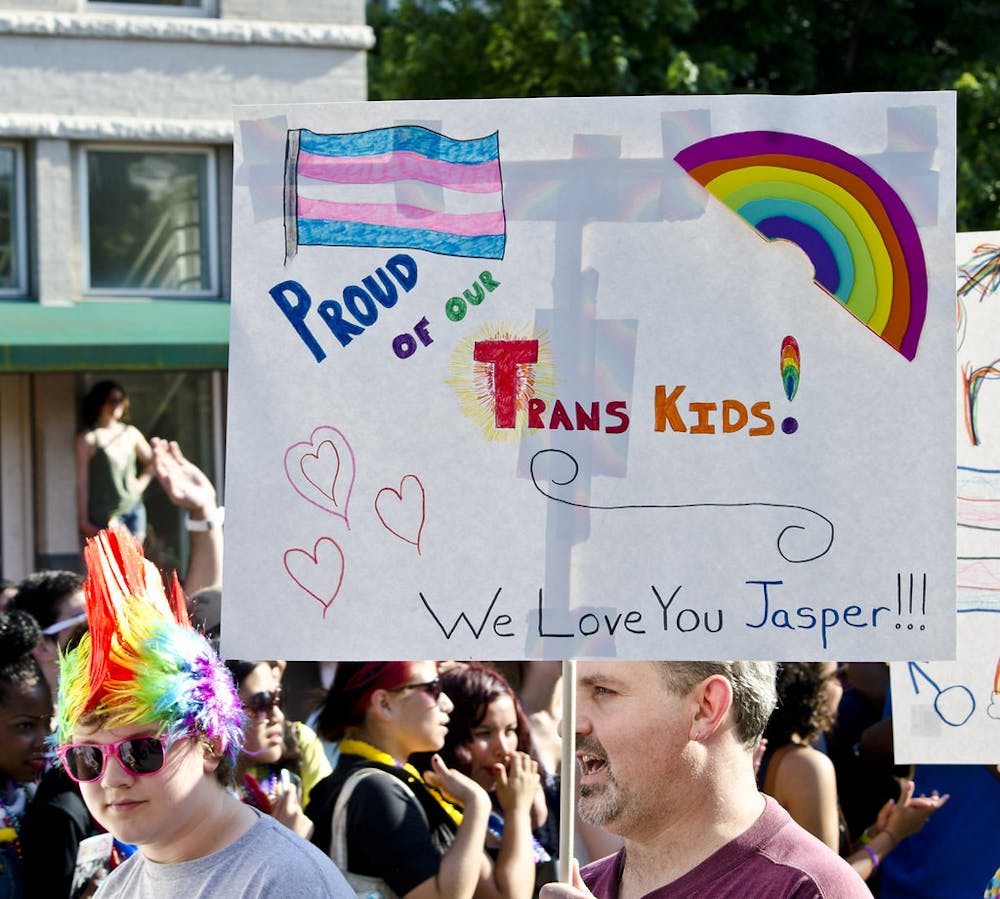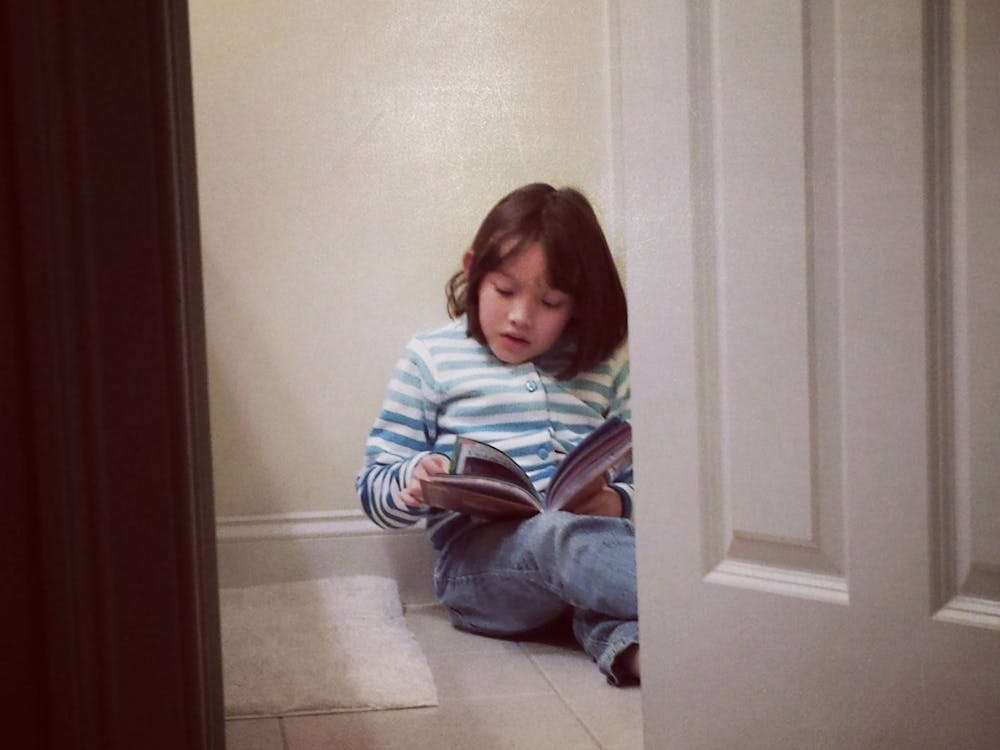
This year, my younger sibling Ellis was finally able to start receiving gender-affirming care to support their journey as a transgender individual. Ellis has always been their own fiercest advocate, using their voice to fight for their right to existence in a society that has extended unspeakable amounts of hate to children who just want the basic right to live authentically as themselves. Without a government to fight for them, I have watched Ellis use their voice at doctors offices, at rallies, around the family dinner table. It has been as inspiring as it has been heartbreaking.
Next year, Ellis will begin their freshman year of college. On the morning of November 6th, 2024, Ellis’s list of potential universities shrunk. Were they rejected? No. But as of right now, they would simply not feel safe attending college in a red state, under a red Senate, under a red President who promises on his official campaign website to “revoke Joe Biden’s cruel policies on so-called ‘gender affirming care’ — a process that includes giving kids puberty blockers, mutating their physical appearance, and ultimately performing surgery on minor children.”
At age thirteen Ellis opened up to our family about their gender dysphoria. Trans individuals are several times more likely to experience mental health issues such as depression and anxiety. 82% at some point consider suicide, and 40% attempt. Trans youth are particularly affected by such statistics: without easy access to media representation, educational resources, medical care and family support, the journey of a transgender child coming into themselves can be incredibly long and isolating.
I watched my sibling fight for years to establish themselves within the confines of an extremely gendered society and express themselves in a way that felt authentic and natural to them. Some of these changes were subtle, like a haircut and an at-home dye job; some were more transformative, like top surgery. With each change, Ellis’s mental health improved, their sense of self strengthened — my once hollowed-out and hopeless sibling started to glow again. Is this what Donald Trump sees as cruel mutations of the self? Is the happiness of a queer child really something that is so political?
In the wake of the results of this presidential election I have found myself feeling quite empty. I have been spending a lot of time in the past, where my sibling was struggling the most. I have been reflecting on how many trans kids are going to feel the same way for even longer under the control of a Republican government. I have been wondering if my sibling is going to have to feel this way again.
One of the biggest things I have been grappling with is how anyone can view Trump’s social policy plans as a political victory, and with that I have been grappling with American hate. Reversing protections for gender-affirming care, eliminating already-lacking LGBTQ+ education from public schools, criminalizing parents for supporting their trans children — Project 2025 ideology is sickening.
I have been struggling to feel empathy for people who did not vote the same way I did. I know that most people do not cast their ballots with malicious intent: everyone has someone they care about, someone they’re voting on behalf of — and my feelings of apathy are not feelings I welcome. But at the same time, I can’t help but feel a bit cynical scrolling through the Instagram stories of people I went to high school with who are reposting Trump’s victory with captions like “We’re so back.” Back to what, exactly? No presidential candidate is a cure-all, and I cannot fathom an existence where I would vote for hypothetical lower gas prices at the expense of entire populations of marginalized groups.
People don’t understand the idea that gender-affirming care is lifesaving until they’ve seen it save the life of someone they care about. I understand that. Sometimes you need an issue to wrap its cold hands around your throat until you can begin to accept its gravity. I am no stranger to learning from my ignorance — this is why my sibling’s story feels so important for me to share.
Ellis calls me every few weeks to do their T-shot. We chat about their college applications, the changes they’ve seen in their body, how far they’ve come. My sibling has never been as safe in their body and mind as they are right now, and I cannot help but agonize over how many people are about to lose this sense of self-security. I wish that social and political progress were linear factors. This retrograde has felt so heavy.
I am empowered every day by Ellis’s beautiful spirit. They are one of the silliest, most creative and brilliant people I have ever been blessed with. It has been one of the greatest honors imaginable to watch them grow into themselves the way they have, to watch them use their voice loudly and take seats at tables that do not always welcome them. In a world that feels so abrasive at the moment, I have always admired my sibling’s ability to remain kind and hopeful and determined to further progress.
When I voted this month, I did so with the hope that I would play a part in electing a government that viewed trans rights as human rights, and that wanted children to live fulfilling and vibrant lives no matter their gender identity. I wish more people had done the same: no child deserves a heartbreak this big.
Hailey Finkelstein is a sophomore from Ardsley, NY studying Medicine, Science and the Humanities. Her column shares miscellaneous prose on current issues, the collective Hopkins experience and growing up with a pen in hand.





